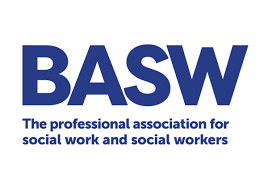CPD in the Social & Care Work Industry
All about CPD requirements in the Social & Care Work Industry
Continuing Professional Development (CPD) is of paramount importance in the realm of Social & Care Work Industry. In the realm of Social & Care Work, Continuing Professional Development (CPD) is the heartbeat of compassionate and effective service delivery. As the needs of vulnerable individuals and communities evolve, CPD ensures that professionals are equipped with the latest approaches, knowledge, and skills to provide holistic care and support.
CPD accreditation in the Social & Care Work industry has thus become a significant marker of excellence. CPD in Social & Care Work empowers
professionals to navigate complex ethical dilemmas, cultural sensitivities, and
emerging best practices. It hones communication, empathy, and problem-solving
abilities, vital for creating positive impacts in people's lives.
Switching focus to the Social & Care Work industry, CPD's importance doesn't waver. Moreover, CPD instills a commitment to maintaining ethical standards, fostering inclusivity, and continuously improving service quality. It equips professionals to address a wide range of challenges, from mental health support to community development, with empathy and effectiveness. In a field where human well-being is at stake, CPD is the cornerstone of creating meaningful, lasting positive change and improving the lives of those in need.
CPD is the lifeblood of Social & Care Work. It empowers professionals to provide compassionate, effective care by staying current with evolving practices, enhancing skills, and upholding ethical standards to positively impact individuals and communities.
The CPD Requirements
From The Professional Bodies, Associations, and Institutes for Practitioners in the Social & Care Work Industry

THE BRITISH ASSOCIATION OF SOCIAL WORKERS (BASW)
BASW supports their members with their development and has recently introduced a new CPD framework. It is more flexible and recognizes the value of all learning opportunities to professional development, dependent on an individuals level of experience.

NORTHERN IRELAND: SOCIAL CARE COUNCIL (NISCC)
The Northern Ireland Social Care Council was founded as the regulatory body for the social care workforce in Northern Ireland in 2001. The council regulates Social Care Workers, Social Workers, Senior Care Workers & Social Care Managers. Each is expected to do 90 hours PRTL (Post Registration Training & Learning) per year.

SCOTTISH SOCIAL SERVICES COUNCIL (SSSC)
The SSSC is the regulator for the social service workforce in Scotland. They protect the government by registering social service workers, setting standards for their practice and conduct training to support professional development. Social workers are expected to do 90 hours PRTL per annum. Members
undertake minimum 35 hours CPD each year, pro rata for part time staff / volunteers.

ENGLAND: THE COLLEGE OF SOCIAL WORK (TCSW)
IBMS provides members with a CPD scheme that offers a flexible system of recording CPD. The CPD scheme is entirely electronic, recording amending and validating of CPD are all carried out online.

THE PROFESSIONAL ASSOCIATION OF LECTURERS IN YOUTH & COMMUNITY WORK (TAG)
The association supports and represents in excess of 250 educators at over 50 institutions and agencies in the UK. They connect members through conferences, events and sector advocacy. The association does not have a CPD policy for members.

The Institute of CPD
As a pan-industry organisation, The Institute of CPD is open to professionals across all fields, and a home to those dedicated to demonstrating professional excellence. Depending on their membership level, a member of the Institute will commit to 10 or 30 hours of CPD per year.
Some of Our CPD Accredited Social & Care Work Training Providers
BECOME CPD ACCREDITED
Sell more training and enhance your reputation by joining the world-leading CPD Standards Office.
Become a market leader in the Social & Care Work industry by gaining a badge of quality to your training offering.





